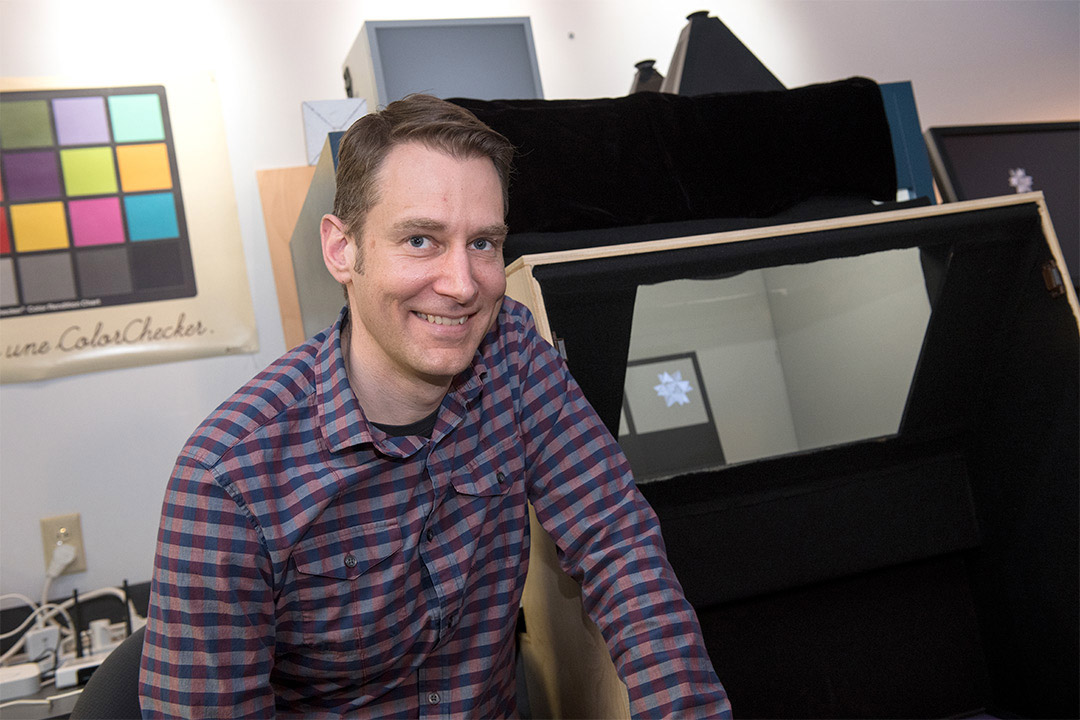Assistant Professor Michael Murdoch earns NSF CAREER award
Murdoch to create computational model of visual appearance in AR
A. Sue Weisler
Michael Murdoch, an assistant professor of color science, received an NSF Faculty Early Career Development (CAREER) award and grant to study how humans perceive color and appearance in augmented reality.
A Rochester Institute of Technology faculty member received a prestigious National Science Foundation award to research how the human visual system perceives a mix of augmented reality (AR) and real-world content. Michael Murdoch, an assistant professor of color science, received an NSF Faculty Early Career Development (CAREER) award to fund his five-year project.
Murdoch will build a computational model of how humans perceive the visual characteristics of AR systems, including color, brightness, depth, and graphics quality, with data from experiments that test visual responses. Augmented reality often uses headsets to overlay virtual content on top of the real world, and factors ranging from transparent displays to indoor and outdoor lighting can all impact on what users see. The grant will provide extensive funding for RIT graduate research assistants to contribute to the project by building custom optical systems, running visual experiments, building computational models and more.
“This is an interesting frontier of color science,” said Murdoch. “It’s focused on a new technology that has new perceptual questions. Through this project we can learn about human perception, which both helps you understand the human visual system but also helps you design better AR systems for the future.”
While AR is becoming increasingly popular in gaming, improving the visual quality of AR content could lead to more robust applications in fields such as education, medicine and transportation. One example Murdoch proposed is doctors overlaying an X-ray-like view of internal organs during exams or laparoscopic surgery. Portions of the grant will also be used to develop and test AR learning modules for university courses in science, math and art.
The CAREER program is an NSF-wide activity that offers prestigious awards in support of early-career faculty who have the potential to serve as academic role models in research and education and to lead advances in the mission of their department or organization. The awards are designed to help early-career faculty build a firm foundation for a lifetime of leadership in integrating education and research.



